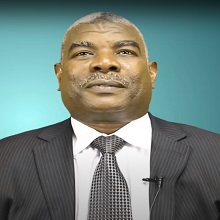Michigan Parole and Probation Violations
Home » Criminal Defense Overview » Michigan Parole and Probation Violations
In Michigan, both parole and probation are alternatives to jail time. Parole refers to the release of prisoners before their sentences are complete. Probation, on the other hand, is when a judge sentences a person to supervised freedom instead of jail time. Probation and parole are privileges, not rights, so violating the conditions of either will result in penalties and in most cases the obligation to complete the sentence behind bars.
How Do Prisoners Get Released on Parole?
The Michigan parole program is organized by the Department of Corrections, whose parole board determines which prisoners may or may not be eligible for parole. When a prisoner is nearing the end of his or sentence, the board will consider whether his or her mental and social attitudes are compatible with release back into society. The board will also need to see evidence that the prisoner will not be a threat if released on parole.
A released prisoner will need to follow each and every condition set by the parole board. This may include getting a job, avoiding contact with criminals, submitting to drug testing, and of course, not committing any criminal offenses. If the parolee satisfies all of the parole conditions, the department of corrections will eventually consider the sentence to have been completed.
What Happens After a Parole Condition Violation?
Parole officers and other law enforcement officials have the authority to make an arrest when they have a reasonable ground to believe that a person has violated his or her parole conditions. Once arrested, detained parolees have the right to a hearing during which they may challenge the department of corrections’ evidence and present evidence of their own to show that no parole violation took place.
Serious violations of parole conditions, such as committing a crime, will result in the parolee being sent back to jail. For less serious violations, the department of corrections may set a longer parole term or put in place stricter conditions. As of 2006, there is no possibility of appealing a discretionary parole board decision.
What Are the Consequences of a Probation Violation?
At a sentencing hearing, a judge may allow the convict to avoid a jail sentence if he or she obeys probation conditions, which might include submitting to regular drug testing, not associating with gang members, or attending counseling sessions. If there is evidence that the person on probation has violated one or more conditions, he or she will receive a court summons explaining the charges. Sometimes, law enforcement catches probationers violating their probation conditions red-handed, in which case they will arrest the offender on the spot.
Whether a probationer gets arrested or summoned to court, he or she will have the opportunity to refute the probation violation charges at a hearing. During this hearing, the probationer and his or her lawyer can present evidence and cross-examine witnesses.
The authorities are at a significant advantage during probation revocation hearings because they need only prove that a violation occurred by a preponderance of the evidence, unlike a trial where they need to prove the case beyond a reasonable doubt. The probationer will lose the hearing if the state shows that it is more likely than not that a violation took place.
If the court finds that the probationer is guilty of violating the probation conditions—or if the probationer pleads guilty—the court may modify the conditions of probation, extend the probation period, or revoke probation and impose a jail sentence. The seriousness of the penalty will depend on whether the probation violation was a technicality or criminal behavior that put the public in danger.
How the Michigan Criminal Defense Attorneys at Drias Law Group Help?
Having a skilled Detroit criminal defense attorney by your side at every stage of the criminal justice process will give you the best chances of achieving a positive outcome from your criminal case. Even after your trial and sentencing, you may find that you need the help of a legal professional to get the most out of your probation or parole program.
At Drias Law Group, we will ensure that the authorities do not revoke your probation or parole in violation of your right to due process. We will carefully examine the state’s evidence of your alleged violation and determine how to counter it. If you’ve been charged with violating your parole or probation conditions, trust the right Michigan criminal defense attorney to help. call us today at (313) 944-0236 for a free and confidential consultation of your case.
Need Legal Help? Contact our Michigan Criminal Defense Attorneys Today.
Your initial consultation will always be free and confidential. Call (313) 944-0236 today or fill out the form below and we will help you.
"*" indicates required fields


